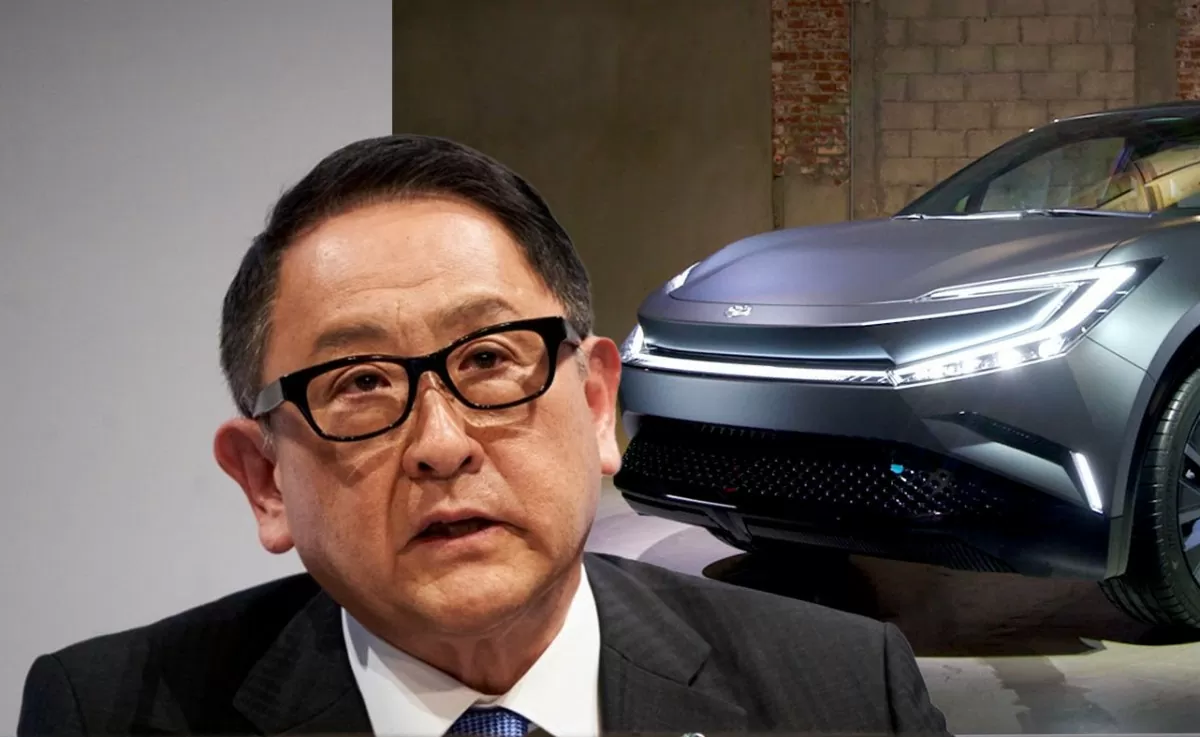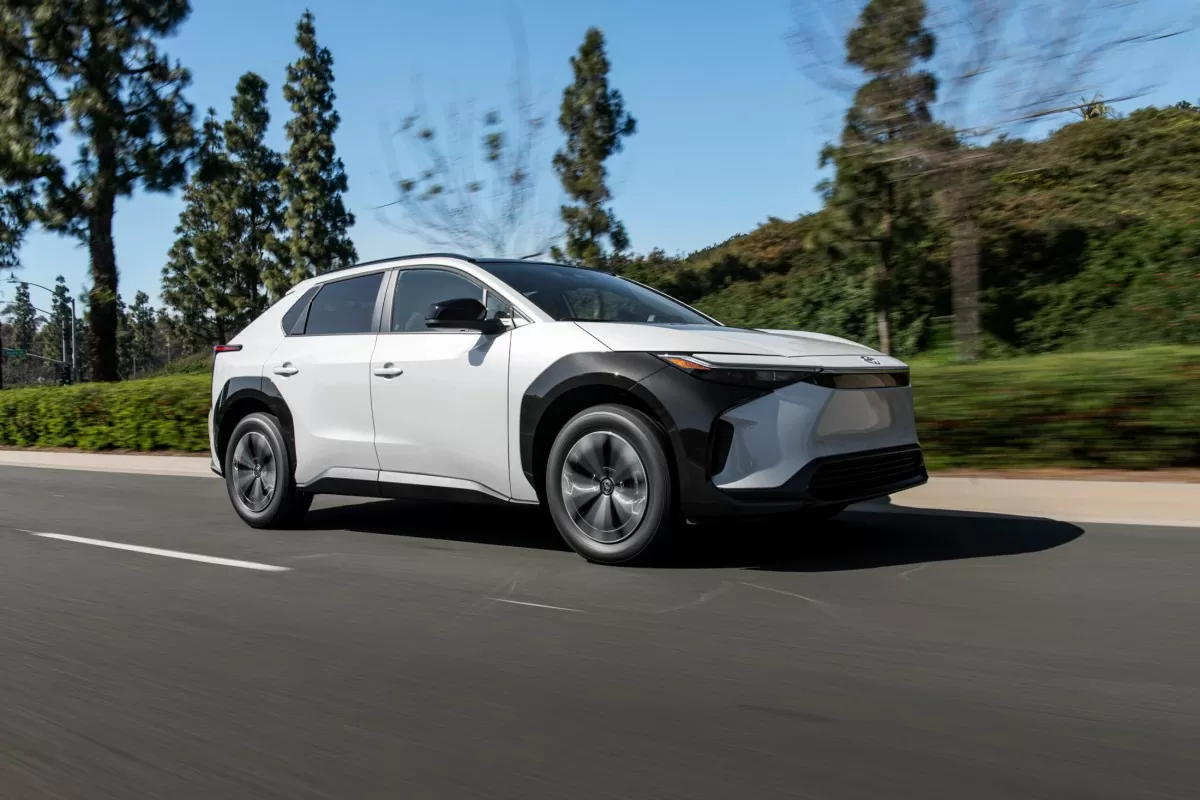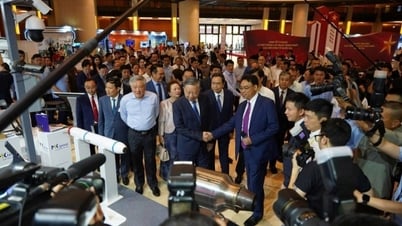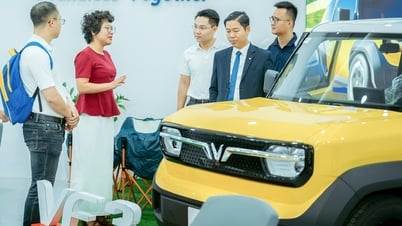According to Carscoop on October 13, Toyota President and former CEO Akio Toyoda has always been straightforward about his views on electric vehicles. In fact, the Japanese automaker has always been cautious about its future plans to produce only fully electric cars. At the same time, it is also trying to develop alternative fuels and hybrid vehicles.
 |
| Toyota president worries about labor market turmoil as industry shifts to electric vehicles only. Photo: Carscoops |
And most recently, Toyota president Akio Toyoda predicted that if there is a future of only electric vehicles, the automotive sector, especially those working in the field of internal combustion engine technology, will be severely affected, even millions of people will lose their jobs. He made this comment at an event at Nagoya University in Japan.
“ There are 5.5 million people involved in the auto industry in Japan. Many of them have been working on internal combustion engines for a long time, ” said Akio Toyoda. The president stressed that if electric vehicles become the only option, manufacturers will not be able to retain these workers.
Akio Toyoda’s latest comments are consistent with views he has expressed over the years. In addition to predicting job losses in the industry, the Toyota president also criticized politicians who push for electric vehicles when Japan risks a summer power shortage if all vehicles go electric. Instead, Toyoda advocates a more balanced path to carbon neutrality, including hybrids and cleaner internal combustion engines.
Amid the controversy surrounding the electric vehicle “wave,” Akio Toyoda, Toyota’s CEO, was criticized for being a blocker to government efforts to curb climate change. His most recent re-election as president earlier this year was met with opposition from some investors who said his views were flawed.
Despite the controversy, however, Toyota is now seen as making the right call in its cautious approach to electric vehicles, as other automakers like Ford, General Motors, and Volvo are now reassessing their previous EV-focused strategies. On the other hand, Toyota sells more cars in the US than any other automaker, thanks in large part to its extensive hybrid lineup.
 |
| Toyota is stable thanks to caution with electric vehicles. Photo: Carscoops |
In fact, in 2024, the American automaker Ford officially abandoned plans to produce a line of all-electric sports utility vehicles (SUVs), replacing them with hybrid models. Hybrid models typically have a shorter battery range, but are compensated by the combination with a gasoline engine, providing a longer range. This decision will not only result in Ford having to account for at least $400 million in manufacturing equipment that was invested in electric SUVs that are no longer used, but may also entail an additional loss of $1.1 billion from adjusting development and production plans.
Luxury carmaker Volvo remains committed to an all-electric future with five models already on the market and five more in development, and full electrification remains a key strategic goal, with zero greenhouse gas emissions by 2040. However, the specific numbers and timelines of the original plan have been adjusted by Volvo to align with its business strategy.
Specifically, Volvo aims to have 90-100% of its global sales by 2030 be electrified vehicles, including pure electric and plug-in hybrid (PHEV) models, with the remaining 10% being a limited number of mild hybrid models if needed. Previously, the car company set a goal of producing only pure electric vehicles by 2030.
Source: https://congthuong.vn/chu-cich-toyota-canh-bao-ve-so-nguoi-mat-viec-khi-thi-truong-chi-con-xe-thuan-dien-352118.html


![[Photo] General Secretary To Lam visits exhibition of achievements in private economic development](https://vphoto.vietnam.vn/thumb/1200x675/vietnam/resource/IMAGE/2025/5/18/1809dc545f214a86911fe2d2d0fde2e8)
![[Photo] More than 17,000 candidates participate in the 2025 SPT Competency Assessment Test of Hanoi National University of Education](https://vphoto.vietnam.vn/thumb/1200x675/vietnam/resource/IMAGE/2025/5/17/e538d9a1636c407cbb211b314e6303fd)


![[Photo] National conference to disseminate and implement Resolution No. 66-NQ/TW and Resolution No. 68-NQ/TW of the Politburo](https://vphoto.vietnam.vn/thumb/1200x675/vietnam/resource/IMAGE/2025/5/18/adf666b9303a4213998b395b05234b6a)


















![[Photo] Prime Minister Pham Minh Chinh chairs meeting on science and technology development](https://vphoto.vietnam.vn/thumb/1200x675/vietnam/resource/IMAGE/2025/5/17/ae80dd74c384439789b12013c738a045)
































































Comment (0)